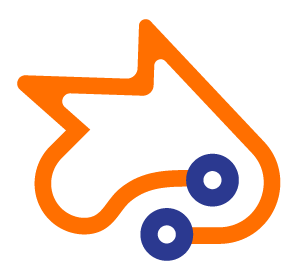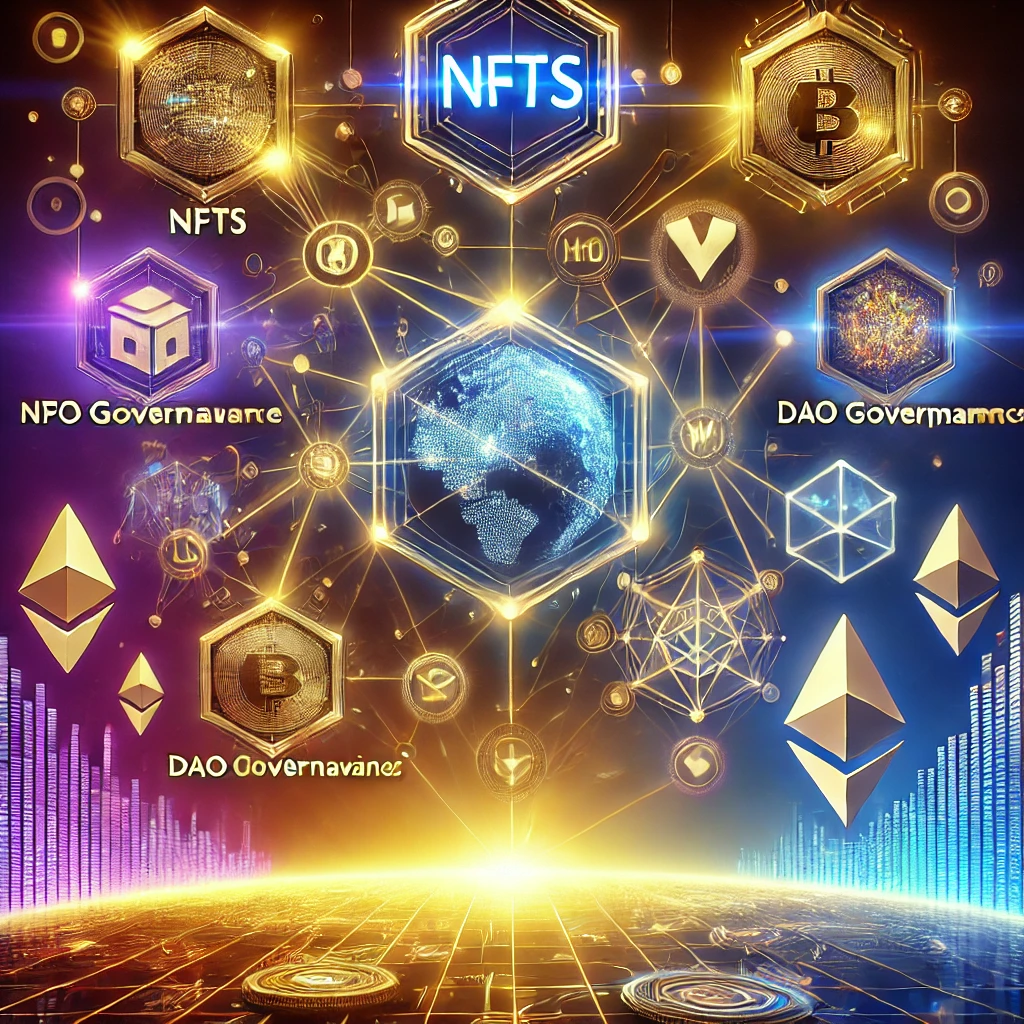As Web3 technology matures, Decentralized Autonomous Organizations (DAOs) are transforming how organizations operate by decentralizing decision-making and empowering communities. For enterprises, DAOs offer a fresh governance model that prioritizes transparency, efficiency, and user engagement. This article explores how DAOs can reshape corporate governance, the benefits and challenges of adopting a DAO structure, and practical steps for enterprises interested in this model.
What is a DAO, and How Does it Work for Enterprises?
A Decentralized Autonomous Organization, or DAO, is an organization managed by smart contracts and governed by token-holders. In a DAO, decisions are made collectively by members, typically through voting, rather than by a central authority. DAOs leverage blockchain technology to provide transparent and automated governance, reducing human error and increasing accountability.
DAO Key Features:
- Token-Based Voting: Members hold tokens that enable them to vote on proposals, which could range from financial decisions to strategic initiatives.
- Smart Contract Automation: Many DAO functions are automated using smart contracts, which self-execute when certain conditions are met, streamlining operations.
- Transparent Decision-Making: All DAO actions and votes are publicly recorded on the blockchain, increasing transparency and accountability.
For enterprises, DAOs provide a way to involve stakeholders directly in governance, offering a flexible alternative to traditional hierarchical structures.
Benefits of Decentralized Governance for Enterprises
DAOs offer several advantages for enterprises, particularly in promoting transparency, accountability, and engagement.
1. Increased Transparency and Accountability
With DAOs, all votes and decisions are publicly visible on the blockchain, reducing the potential for behind-the-scenes influence. This transparency builds trust with stakeholders, especially in industries where governance and ethical standards are important.
2. Community-Driven Decision-Making
DAOs foster a participatory governance model where employees, customers, and stakeholders have a voice in decision-making. This approach can lead to increased user engagement and a stronger sense of ownership and loyalty among community members.
3. Efficiency through Smart Contract Automation
By using smart contracts, DAOs automate many operational tasks, from releasing funds to allocating resources based on voting outcomes. This reduces the need for manual oversight and streamlines routine processes, allowing enterprises to focus on high-level strategy.
Case Study: MakerDAO
MakerDAO, one of the largest DAOs in the blockchain space, governs the DAI stablecoin protocol. The community votes on proposals to adjust monetary policy, lending parameters, and overall protocol development. By involving token holders in governance, MakerDAO has built a dedicated community and established a resilient, community-driven financial protocol.
Challenges of DAO Integration in Traditional Enterprises
While DAOs offer many benefits, integrating a decentralized governance model into a traditional enterprise comes with unique challenges.
1. Cultural Shifts and Resistance to Change
DAOs require a culture of open participation, which may feel unfamiliar in traditional hierarchical structures. Employees used to clear top-down management may be reluctant to adopt new governance models where authority is distributed among token holders.
2. Legal and Regulatory Considerations
DAOs are a new governance model, and regulatory frameworks are still evolving. In many jurisdictions, questions around liability, voting rights, and compliance remain unresolved. Enterprises need to consult legal experts to ensure compliance while adopting DAOs, especially when handling large financial transactions or sensitive data.
3. Security Risks in Smart Contracts
While smart contracts enable efficient and transparent governance, they are vulnerable to coding errors or exploits. Enterprises must conduct thorough audits and implement robust security protocols to mitigate these risks.
Takeaway:
To integrate DAOs successfully, enterprises must be prepared for cultural shifts, address regulatory requirements, and prioritize smart contract security.
Steps for Enterprises Interested in DAO Adoption
For enterprises considering a DAO model, a gradual approach that combines traditional and decentralized governance can help smooth the transition. Here are steps to get started:
1. Identify Pilot Projects for DAO Integration
Start with specific, manageable projects that benefit from decentralized governance. For example, creating a DAO-driven committee for community engagement or product development allows enterprises to test DAO governance without risking core operations.
2. Design a Hybrid Governance Model
Implementing a hybrid structure allows enterprises to blend traditional oversight with decentralized decision-making. For example, certain decisions might remain with a centralized board, while others—such as new feature development or marketing initiatives—can be put to a community vote.
3. Define Clear DAO Governance Rules and Voting Mechanisms
Establishing clear rules for voting, proposal submission, and token distribution is crucial. Ensure that these processes align with company goals and provide the community with real decision-making power. Consider weighted voting based on token holdings or a time-based lock for voting rights to encourage long-term engagement.
4. Invest in Security Audits and Legal Guidance
Security is paramount in any DAO model. Partner with blockchain security firms to conduct regular audits and engage legal experts to ensure regulatory compliance. This mitigates risks associated with smart contract vulnerabilities and uncharted legal implications.
Case Study: Aragon for Enterprise DAOs
Aragon is a platform that enables organizations to create and manage DAOs on the Ethereum blockchain. Several companies have used Aragon to create customized DAO frameworks, allowing them to experiment with decentralized governance for specific projects. By using Aragon’s tools, enterprises can test DAO functionality, explore community engagement, and scale DAO governance as they gain experience.
The Future of DAOs in Corporate Structures
As enterprises increasingly adopt Web3 technologies, the future may see hybrid corporate structures combining centralized oversight with DAO-based divisions. DAOs could drive innovation in employee engagement, customer loyalty, and partner collaboration by empowering these groups with a voice in decision-making.
Potential Applications for DAOs in Enterprises:
- Employee-Led Initiatives: Enable employees to propose and vote on projects or workplace improvements, promoting a culture of innovation.
- Customer-Driven Product Development: Engage customers in voting on product features or upgrades, fostering brand loyalty and user-centered design.
- Collaborative Partnerships: Use DAOs to facilitate partnerships by allowing multiple organizations to contribute to and benefit from joint projects.
As regulatory frameworks around DAOs evolve, more enterprises may adopt them, particularly in industries that benefit from transparency and community involvement, such as finance, tech, and supply chain management.
Takeaway:
DAOs represent an innovative governance model for enterprises looking to blend corporate oversight with decentralized, community-driven growth. By adopting hybrid models, enterprises can enjoy the benefits of decentralization without fully giving up traditional structures.
Conclusion: Is Your Enterprise Ready for a DAO?
The potential of DAOs to create more transparent, efficient, and community-driven organizations is undeniable. For enterprises exploring this path, DAOs provide an opportunity to engage stakeholders, reduce operational costs, and foster innovation through decentralized governance. However, successful adoption requires a strategic approach that considers both the challenges and opportunities of this novel model.
By starting with pilot projects, developing hybrid governance structures, and investing in security and legal compliance, enterprises can lay a strong foundation for DAO adoption. Whether you’re an enterprise looking to empower your workforce, engage customers, or streamline operations, DAOs offer a glimpse into the future of governance—one that is inclusive, transparent, and aligned with Web3’s decentralized vision.






